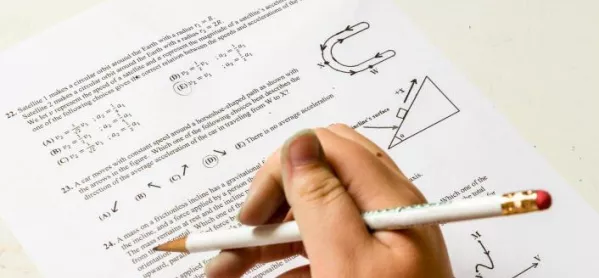- Home
- 6 ways to use GCSE exam scripts and examiners’ reports
6 ways to use GCSE exam scripts and examiners’ reports

Waiting for results is torturous. But, once you’ve received them, it’s almost a blessed relief to go over the grades, explore the boundaries and start to build a picture of what went well, and what didn’t, to help your students improve next year.
This is where examiners’ reports and recalled scripts can be very helpful - to inform your understanding of how examiners are assessing scripts, and to help you address any shortcomings and to take comfort in what you are doing well.
For me, as an English teacher with 11 years’ experience, it’s something I regularly factor into my post-results plans and it has proved highly beneficial.
So how can you make the most of examiners’ reports and recalled scripts to inform future teaching?
1. See what you’re doing well…
Once the examiners’ report is released by the exam board, download it so you have it on file whenever needed. Then read it carefully - several times. You might even want to summarise it for your own understanding.
It’s worth looking for references that pinpoint areas where you are doing well.
For example, using thesis statements as introductory paragraphs for literature was mentioned in one examiners’ report this year as a type of introduction they think is helpful. This is something we get our pupils to do, so seeing it in the report was useful to know it’s a worthwhile approach.
2. …and acknowledge where you can improve
It’s also important to look for where you can improve by identifying areas in which you haven’t performed as well. Use these to inform your forward planning for faculty development.
Literature and language examiners’ reports are split into the different paper components, so it’s easy to look at individual components and questions. In the past, I’ve used advice from this aspect of the examiners’ report to adapt my teaching to focus on moving students away from terminology spotting towards discussing the effect of the language.
With literature exams, even if you don’t teach all the texts mentioned in the report, read it anyway and select information about what the examiners value in that part of the exam. These can often transfer this knowledge to your own texts.
With language, the question-by-question breakdown is invaluable regarding the strengths and weaknesses of lower and higher attainers. Use the higher-attaining information to ascertain what your students should be doing and what the examiners are telling you to target in those areas.
3. Understand the nuances of different grade boundaries
Recalling papers is also hugely helpful to see how certain students performed and how this could inform future teaching strategies.
My first piece of advice would be to recall papers judiciously. Should you wish to target 3-4 and 4-5 grade boundaries, it might be useful to select students from the bottom, middle or top of the boundaries so you can assess the differences and similarities in the answers.
Furthermore, if you what to know what you can do to get future students over a certain boundary, it’s worth recalling scripts that fell just short of certain levels as well as those that made the grade to look at the differences between a 2 and a 3 or a 3 and a 4 - all the way up to grade 9.
From studying the near misses, you can identify what they didn’t do enough of in order to explain this to future cohorts. Minor tweaks can make a big difference, such as giving an overview of the meaning of a text before focusing in closely on the language.
4. Analyse and discuss exam papers as a department
Once the recalled papers are in your hands the learning starts, I’d recommend creating a moderation pack for every member of your team and using time in faculty meetings or Inset days to do a “deep dive” into what is happening for those specific students in the papers.
We often discuss particular grades in pairs then feedback as a group and discuss the nuanced differences between the grades. Then, as a team, we discuss two key things:
- What have we learned about students who are working at a particular grade?
- What is the difference between the grades?
This information should be drip-fed back into your individual and faculty teaching. Across the year, return to the learning from the recalled scripts, share anonymous examples with your current students and remind yourself and your team about what you learned.
5. Get ahead of the game
The examiners’ report is also useful for your key stage 3 curriculum. Take time to reflect on what it says and identify areas that examiners value and you know need to be focused on before students reach KS4.
This doesn’t mean diluting KS3 into a mini-KS4, but can help you focus on ensuring that the areas highlighted in the examiners’ report are being addressed early.
6. Don’t just teach to the test
It’s always worth remembering that grade boundaries change, so you should always be mindful of the risks of being too focused on teaching to the test and assuming a certain type of answer is worth a certain grade.
Overall, though, these resources are a chance to get well acquainted with the thought processes of the examiners that oversee your pupils’ most important work.
As such, these are post-exam services you should use every year to strengthen, develop and inform your teaching strategies and help your forward planning for the year.
Susan English is a key stage 4 English head of department at a secondary school in the South West. She tweets as @susansenglish
Keep reading for just £1 per month
You've reached your limit of free articles this month. Subscribe for £1 per month for three months and get:
- Unlimited access to all Tes magazine content
- Exclusive subscriber-only stories
- Award-winning email newsletters